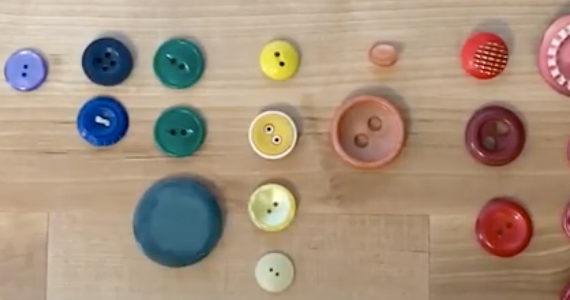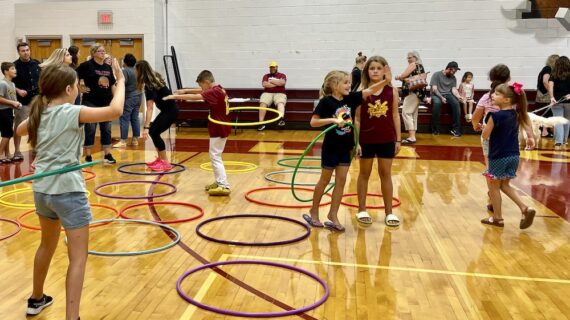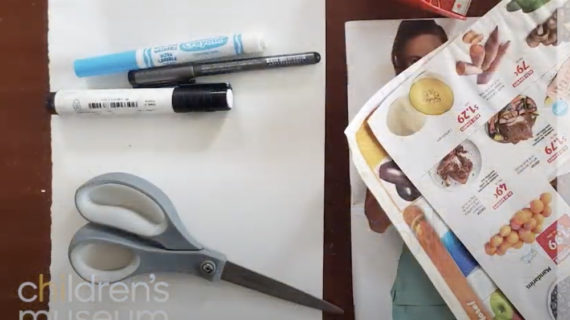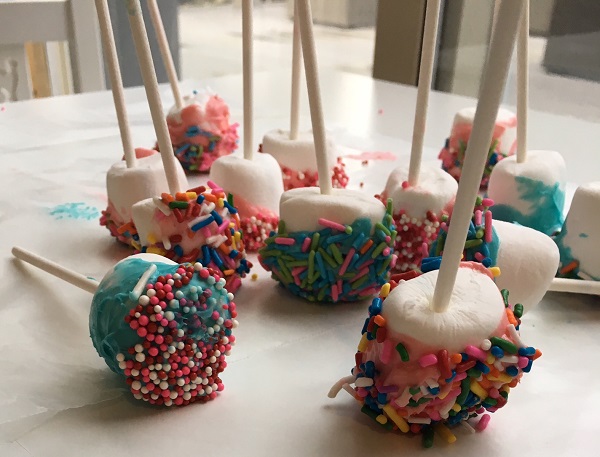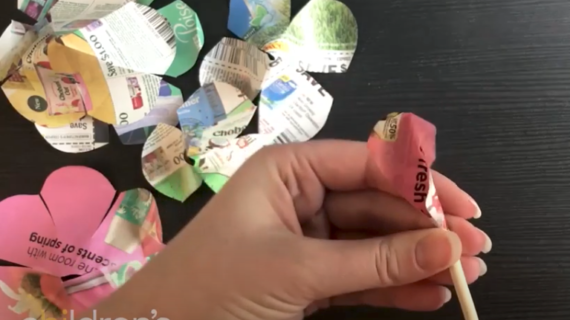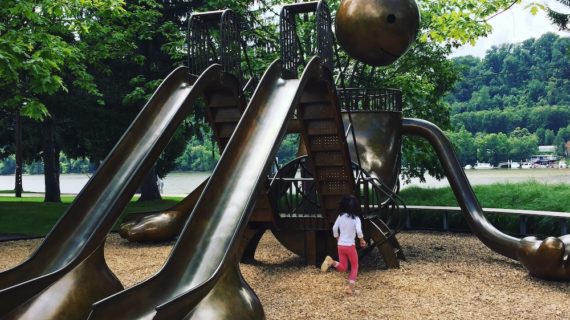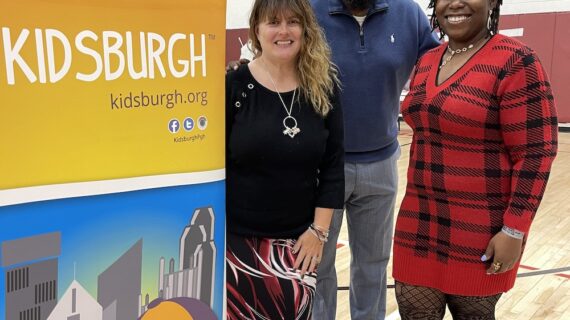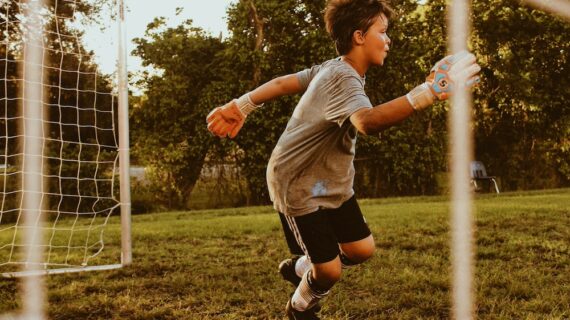
A day in Summer B.O.O.S.T: Combating learning loss with fun activities at PPS
In the photo above, young students make crafts at Martin Luther King Jr. Elementary School during the Pittsburgh Public Schools Summer BOOST program on July 25, 2024. (Jess Daninhirsch/PublicSource)
It’s a stuffy July day on the North Side, and Pittsburgh Public Schools’ King Pre-K-8 is buzzing with activity. This morning, a teacher is beckoning her incoming third graders to join her on the classroom’s carpet and put down their snacks. “We get crumbs, then we get four-legged friends,” she tells them.
She asks what the class has learned this summer about kindness, managing frustration and goal-setting, among other social and emotional skills. “We talked about being kind, being scholarly, being supportive and being, um … and being nice,” one student volunteers.
In another class, students are learning addition, subtraction and multiplication with cards and die. In the kindergarten wing, a YouTube video plays animated childhood fables before the little ones begin their lesson on reading and spelling. Walk into another class, and the older students are in the middle of a chant: We have lots of knowledge / We have lots of fun / We will go to college / And show you how it’s done!

School is out for the summer, but these students were participating in the district’s free Summer B.O.O.S.T. program, a monthlong offering that ended July 26. The program, which the district has operated for years, is designed to prevent summer learning loss and help students build relationships “that put youth on track for their future academic success.”
Researchers have lacked consensus on the severity — and existence of — summer learning loss, but some teachers said they’ve seen participating students improve academically. This year, the program was located at three sites in the district: King Pre-K-8, Arlington K-8 and Obama 6-12.
“We want your child to be able to take risks in learning something new,” said Tracy Calhoun, who directs the program at King, referencing its drum circle activity. “If they get that exposure in trying something different, maybe they might use that same mentality when they go into the academic classroom.”

When the program began in 2010, it was open to students whose standardized test scores were “Basic” or “Below Basic,” indicating a limited or inadequate understanding of the test material. After the pandemic, the district opened enrollment to any student who wanted to participate.
Summer B.O.O.S.T. takes a “whole child development approach,” according to Sydni Mundy, the program manager. This summer, each day began with 90 minutes of English language arts instruction, followed by 90 minutes of math. The second half of the day was focused on activities and games, including football matches, sewing classes and poetry lessons.
“We really want academic achievement. That’s what we’re looking for,” Calhoun said.

Even so, enrollment in Summer B.O.O.S.T. has been decreasing. The district has traditionally aimed to serve about 1400 kids. This year, about 1,364 kids signed up — and one-third showed up. This is largely because parents now have multiple options for summer camps, said Mundy.
Mundy added that enrollment numbers for the camp are lower than the district would like but that staff are working to engage parents. The district has tried to eliminate common attendance barriers, including a lack of transportation and food insecurity. All students are bussed to the three campsites and are provided breakfast, lunch and a snack every day.
Measuring progress
After lunch, the students at King participated in a variety of activities by grade. Two instructors led a drum circle as part of “Wongai to Africa,” five students played alongside them while others sang. Kindergarteners made self-portraits with dried pasta, glue and paint during “Small Bites,” and students participating in “Sak Pasé Haiti” snacked on plantains and fresh fruit.
“A taste of the island,” a teacher said as she helped serve the food.

To better track the outcomes of the program, the district has hired a consulting firm to evaluate the academic gains and attendance data of this year’s participating students. In previous years, all students were required to take tests at the beginning and end of the program to assess their learning growth but academic gains were not effectively tracked.
Leonard Casilli, who teaches sixth-grade English Language Arts during the summer programming, said the district needs to show families that Summer B.O.O.S.T. is successful at combating learning loss to improve support for the program. “I think they’re doing themselves a big disservice by not having that information available so we can show and improve the validity of the program,” he said.

Still, other teachers anecdotally said their students have made strides. Laura Goins, who teaches third-grade English Language Arts in the program, said many of her students could read more words per minute at the end of the program.
“There’s a definite difference between the kids that have been going to B.O.O.S.T. versus the kids that didn’t go,” she said.
Summer B.O.O.S.T. also serves students with disabilities who have an Individualized Education Plan [IEP]. Kristin Schwartz, an autistic support teacher at Camp Arlington, said many students with an IEP regress over the summer, which can significantly impact their test scores. For these students, Extended School Year services are built into the program so they can meet their IEP goals while being integrated into general education.
The program aims to meet academic and behavioral goals for students with exceptionalities and create the least restrictive learning environment for them.
This summer, the theme of the program at Arlington was “Shining Stars.” The school had transformed to match the theme, its hallways filled with balloon arches, glitter and ribbons. As a reminder to students, the phrase, “Energy is real. Energy is contagious, Today my energy is going to be amazing,” was plastered across the school.
Emma Folts covers higher education at PublicSource, in partnership with Open Campus. She can be reached at emma@publicsource.org. Lajja Mistry is the K-12 education reporter at PublicSource. She can be reached at lajja@publicsource.org.
This article first appeared on PublicSource and is republished here under a Creative Commons license.







